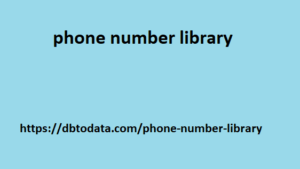What I learned from a kids’ soccer game about teamwork
I can’t explain it to you, but I especially needed it. I couldn’t lose another game with our 10-year-old soccer team. The kids aren’t affected as much because they quickly focus on other things. I’ve been thinking all week about how we can improve to get the most out of our team’s players. Before the game I was definitely more nervous than they were, although I obviously didn’t show it to them.
On Saturday I changed tactics
We played without a striker so that we had a central player who was able to make “deadly” passes to the wings that could end up in goals. We also played with marking in our own half. We only attacked when the opposing team came close to halfway. It was surprising to see that this way of playing was totally destructive since the opponent didn’t find any ways to solve it.
The tactics I chose are not the ones algeria phone number library that would have been in the books. They are not the ones I played at that age, but they were the most suitable for our team. It’s not the best way to play with a team of children of this age and not at all the prettiest.
We have good and bad players
We struggle to play as a team Te waahi mahi matihiko: he aha tena, he aha hoki? and pass the ball without risking losing it and thus creating a dangerous situation for the opposing team. My strategy was therefore to reduce the risk of conceding a goal as much as possible and create potential goal-scoring opportunities for ourselves without making things too difficult for ourselves. It wasn’t going to be pretty, but it was going to be effective.
It worked. 10 minutes before the end of the gambler data match we were winning 1:4. Then we relaxed and the match ended luckily still 3:4 for us. Victory!
What have I learned from this experience?
You have to organize the team according to its skills. There’s no point in wanting to do things according to the books if your team isn’t prepared for it. It’s better to risk less and see how things develop. It’s better to approach a match from a position of strength than if you’re behind on the scoreboard.
These are the questions I ask myself:
What are our skills/knowledge/strengths that we have and how can we exploit them?
How is the competition positioned and how can we react to it?
How do we need to act today and what are the skills we need to develop in order to compete with the best?
What are our simple actions that can have the maximum impact?
What are the outstanding skills of each team member and how can this have the maximum positive impact?
What do I as a coach need to do so that each team member can perform at the highest level?
For us, this is not the time to attack. We need to act from a low-risk position where every step is carefully evaluated. We need to better understand what we do well and what we still need to improve.







